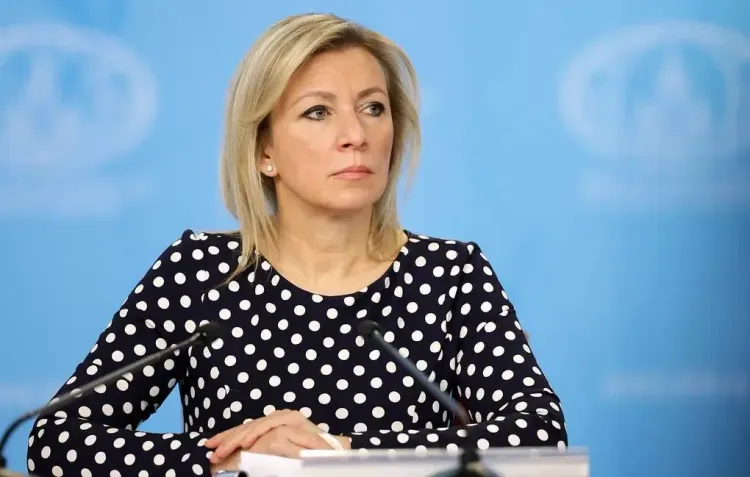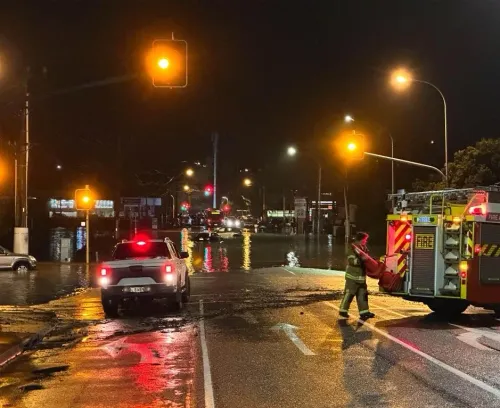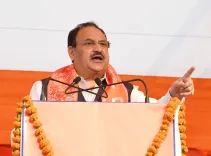Are EU Sanctions Against Russia Backfiring?

Synopsis
Key Takeaways
- Russia claims EU sanctions are counterproductive.
- 19th sanctions package targets Russia's shadow fleet.
- EU committed to financial support for Ukraine.
- Russia intensifies attacks on civilian infrastructure.
- EU leaders to discuss defense readiness.
Moscow, Oct 23 (NationPress) On Thursday, Russia conveyed that the European Union (EU) sanctions imposed against Moscow are, in fact, counterproductive to Brussels, asserting that the scope for further sanctions has been fully utilized.
Maria Zakharova, spokesperson for the Russian Foreign Ministry, stated, "The sanctions being enforced against Russia primarily hinder the European Union. The capacity of Brussels to escalate sanctions against our nation has been significantly depleted."
She continued, "They have nearly exhausted all avenues to execute their strategy aimed at delivering a decisive defeat to Russia, thereby impairing the Russian economy and its defense capabilities," while discussing the 19th sanctions package.
Earlier that day, the EU ratified the 19th sanctions package targeting Russia's shadow fleet, in addition to its banking and energy sectors.
During a joint appearance in Brussels with Ukrainian President Volodymyr Zelensky, the President of the European Council, Antonio Costa, indicated that the Council would make a political commitment to fulfill Ukraine's financial requirements for 2026 and 2027, including for military equipment procurement.
So far, the EU and its member states have extended €177.5 billion in assistance to Ukraine, which encompasses €63.2 billion dedicated to military support.
"Despite the high hopes raised by President Trump's policies, it is evident that these initiatives do not align with President Putin's intentions. Russia is intensifying its attacks on civilians and civilian infrastructure, necessitating ongoing support for Ukraine's pursuit of a fair and enduring peace," noted Costa.
The EU leaders are also set to deliberate on recent developments in the Middle East, particularly the outcomes of the Sharm El-Sheikh Summit for Peace on October 13, the release of all hostages, and the initial stages of US President Donald Trump's peace proposal for Gaza.
In a statement preceding the meeting, it was mentioned that "Building upon earlier European Council discussions, starting from the informal Egmont retreat on February 3 and the most recent informal gathering on October 1 in Copenhagen, the leaders will address the EU’s defense readiness and make concrete decisions on capability projects and governance."









